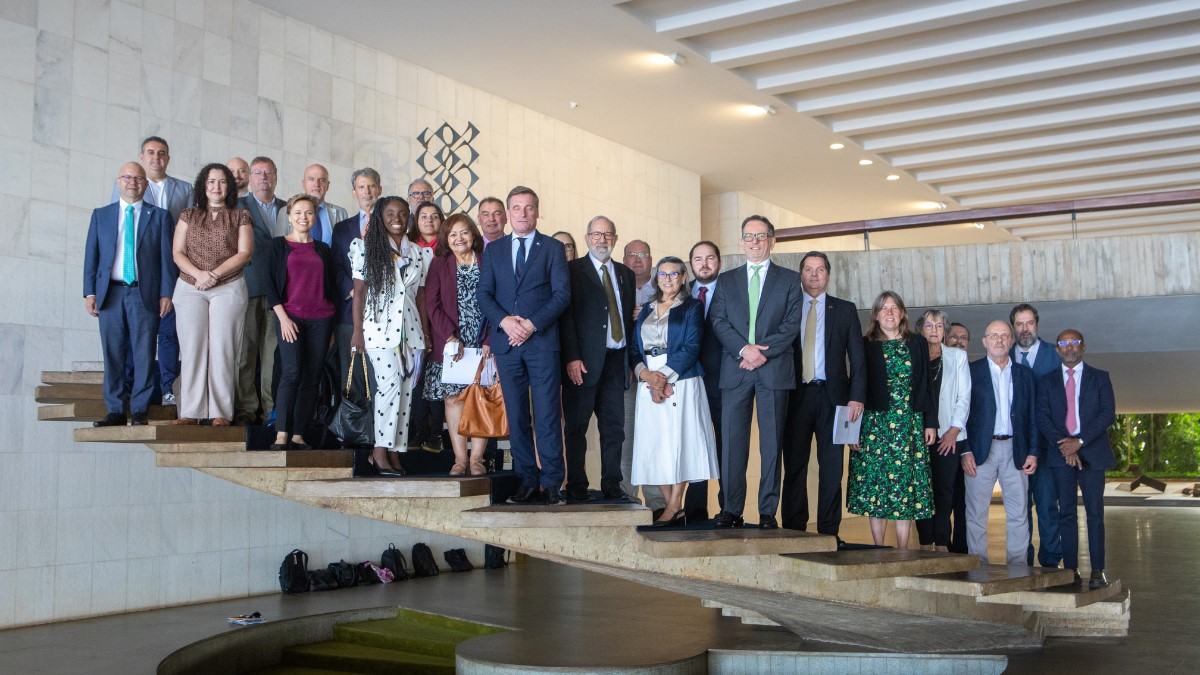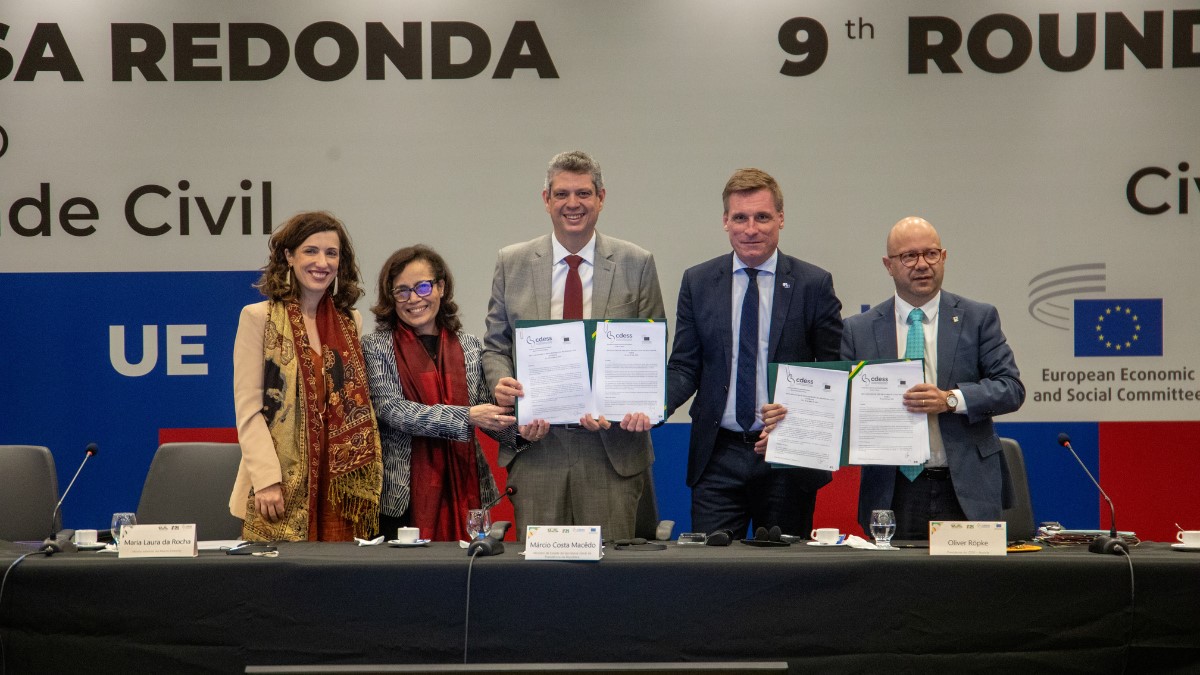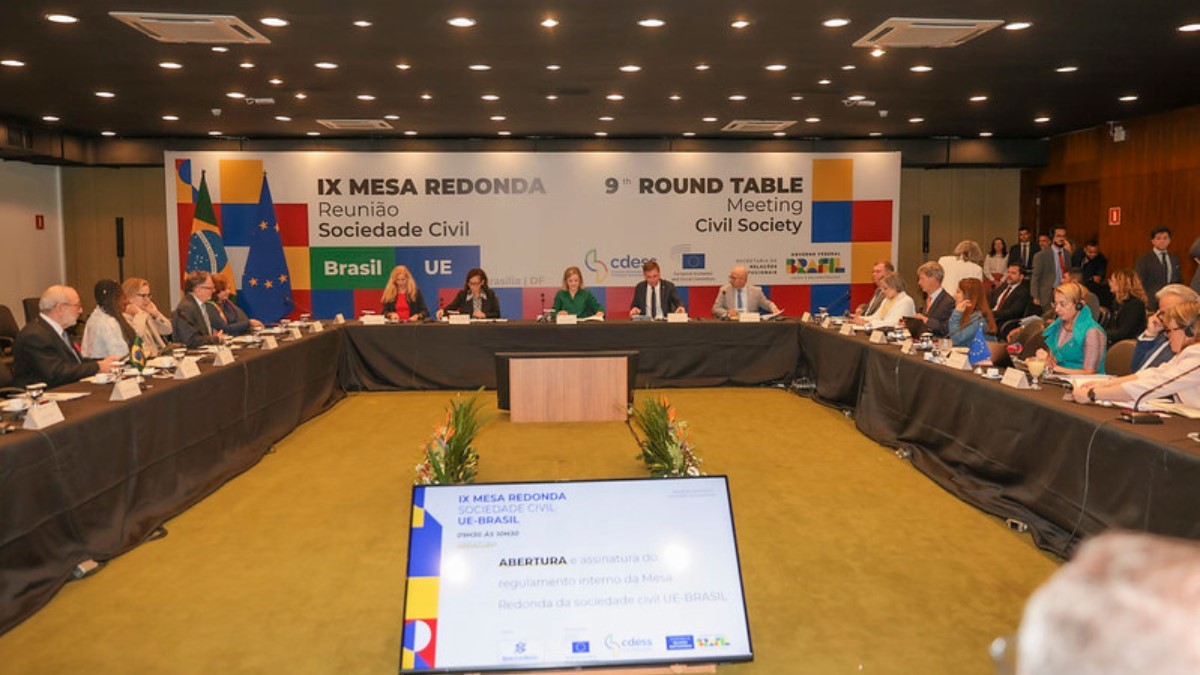
On July 29th and 30th, the Itamaraty Palace hosted the 9th European Union–Brazil Civil Society Roundtable, bringing together representatives of organized civil society, government authorities, and international institutions. The event, part of the Brazil–EU Strategic Partnership, aimed to strengthen democratic dialogue and promote sustainable development. Minister Gleisi Hoffmann, head of the Secretariat for Institutional Relations of the Presidency of the Republic, participated in the opening ceremony. Among the Brazilian participants, Rodolfo Fücher, vice-president of the board of Brazilian Association of Software Companies (ABES) and member of the Brazilian Council for Sustainable Economic and Social Development.

At the end of the meeting, Brazil and the European Union released a joint statement reaffirming the strategic ties between the blocs. The document highlights that:
"Brazil and the European Union are not only close friends, but also key strategic partners and highly influential international political actors, who jointly aspire to a fairer, more inclusive, and more sustainable world that promotes gender equality, non-ethnic discrimination, and decent work."
The declaration also emphasizes that, in the face of growing geopolitical tensions and environmental and social challenges, cooperation between the blocs is more vital than ever. Civil society representatives reinforced the importance of dialogue and civic participation as pillars of democratic resilience and international solidarity.
The Round Table holds alternating meetings across continents. The results are presented to summits of heads of state and government, amplifying the impact of the debated proposals. Previous editions have been held in Brussels, Belém, Antwerp, Porto, and Brasília, addressing topics such as the economic crisis, climate change, social cohesion, and food security.
Fücher welcomed the opportunity for dialogue and emphasized that "civil society engagement is essential to promoting sustainable solutions that are connected to the real needs of the population, especially in light of the digital transformation we are experiencing."
To download the full statement, visit: Final signed declaration Portuguese version














